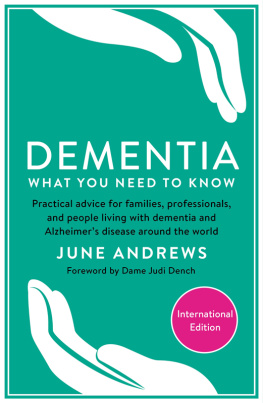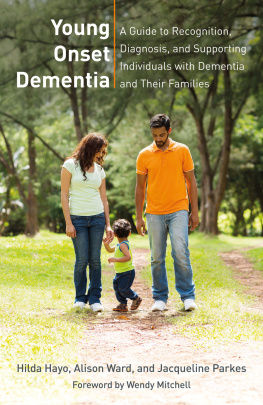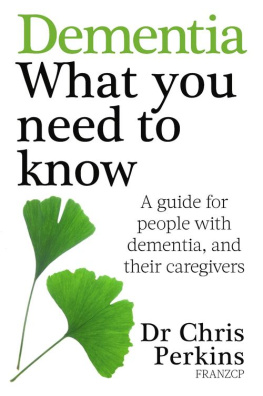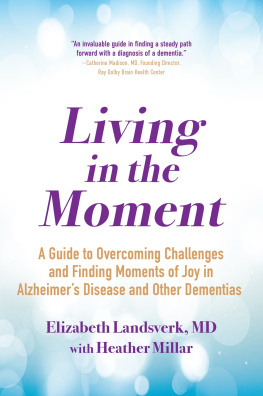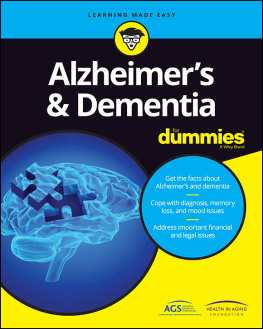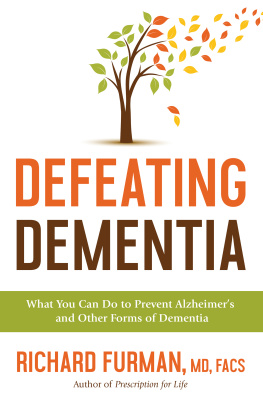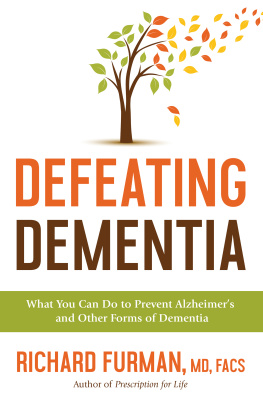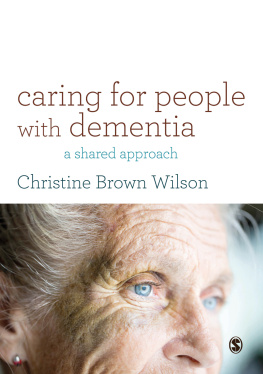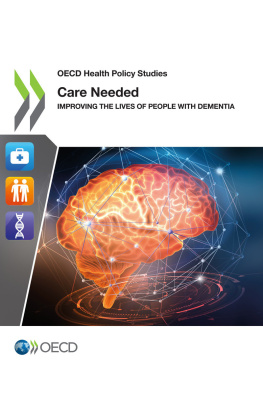The advice provided in this book has been carefully considered and checked by the author and publisher. It should not, however, be regarded as a substitute for competent medical or legal advice. For additional information, to ask questions, or to see updates on issues that have changed recently, please visit www.juneandrews.net
First published in 2016 by
PROFILE BOOKS LTD
3 Holford Yard
Bevin Way
London
WC1X 9HD
www.profilebooks.com
Copyright June Andrews, 2016
The moral right of the author has been asserted.
All rights reserved. Without limiting the rights under copyright reserved above, no part of this publication may be reproduced, stored or introduced into a retrieval system, or transmitted, in any form or by any means (electronic, mechanical, photocopying, recording or otherwise), without the prior written permission of both the copyright owner and the publisher of this book.
A CIP catalogue record for this book is available from the British Library.
eISBN 978 1 78283 263 8
To the memory of Frank Hitchman (19422016).
A fine gentleman, patron of the arts and Secretary to the Dementia Services Development Trust.
Foreword
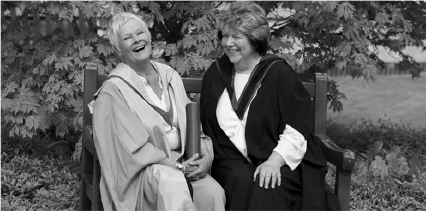
Dame Judi Dench with Professor June Andrews, Iris Murdoch Centre, July 2013
Dear reader
I knew nothing really of dementia before working on the film biography of Iris Murdoch. I was delighted to have played the part of Iris and learned a great deal about this condition from others working on the project who had direct experience of Alzheimers disease. Im very, very pleased that if the film did anything, it put this illness into the spotlight for perhaps the first time. In the years since I undertook this role, I have watched the dementia work of the Iris Murdoch Centre at the University of Stirling and become an ambassador for those who help people with Alzheimers disease, doing what I can to support them in raising awareness.
This book became an instant best seller in the UK because it is so clear and practical and I commend this international edition to you.
It was very daunting playing the role of a woman with dementia for a film, but it must be so much harder to live through the experience. I hope this book will help families and friends of people with dementia all over the world, and be a support to those professionals who work to improve their difficult journey.
With love and all good wishes

Introduction
This book is about dementia and what happens when someone is affected by it. The word dementia is used to describe the collection of warning signs that show up when your brain stops working as well as it used to. It is defined as dementia only if these signs continue to get worse, with a permanent deterioration over time. If you know about dementia you will be better able to look after yourself or someone in your family who is affected by it.
Interest in dementia in the media has never been so great. Movies have been made about famous people who had dementia. Iris, starring Dame Judi Dench, tells the true story of the English novelist Iris Murdoch from her brilliant youth to her last days in a care home. The Iron Lady is a moving film which explores the former UK Prime Minister Margaret Thatchers life through fragments of history that represent her disintegrating thinking and recollection clouded by dementia (and some rather impressive hallucinations). Movies also explore ethical issues. Away from Her, Still Alice and The Savages describe the dilemmas and family dynamics of caring. Although there is still stigma, this public airing means that people are more open about dementia and allow themselves to think about it more than they did in the past. This is all good.
Public figures affected by dementia in their families are recruited as champions by dementia charities and encouraged to talk publicly about dementia and share their stories with other people. Often when I get into a cab and the driver asks me what I do, I hear a personal story about how dementia has affected their family. Once upon a time it was a shameful secret.
Nevertheless, it is almost impossible to get sensible advice about dementia. We are faced with waves of publicity on the subject as newspapers print misleading headlines implying that there will be miracle cures available almost immediately. Families affected by dementia live in fear of losing their entire lifes savings in care home fees. Television commercials encourage us to be positive about dementia while at the same time celebrities and thought leaders say that theyd rather have cancer, or that they believe theyd have a duty to kill themselves if they had dementia. Investigative reporters make TV shows out of the misery of vulnerable people who have been on the receiving end of bad care. Scandalous nursing-home stories ruin our confidence that there might be a place anywhere in which residents, even if they deteriorate, have the benefit of comfort and good cheer. The often-reported heartbreaking treatment of patients with dementia in hospital makes us afraid for ourselves and our older relatives.
In the middle of all this, thousands of people every year get the shocking news that someone in their family has dementia. For many of them their experience unfolds as if no one has ever travelled this path before. They are in uncharted territory, often surrounded by professionals, family and friends who dont know a huge amount about the condition. For many people it is hard to know where to turn for sensible advice.
How do I know this? In 2011, with Professor Allan House, a liaison psychiatrist, I wrote a book in plain language called 10 Helpful Hints for Carers based on the existing research. Our printers proof copies kept being borrowed by doctors, who did not return them. When it was published, families read it avidly. In the following years nearly 65,000 copies had been sold, or exchanged for donations for the Dementia Services Development Trust, the charity that supported us. Families said, Why did no one ever tell us these things before? Professionals and volunteers took more and more copies, to give to patients, to families and to fellow workers who had never been taught about dementia in their training. At last there was some sensible and practical advice for anyone trying to make things better for people with dementia. But it was not enough. A second book

